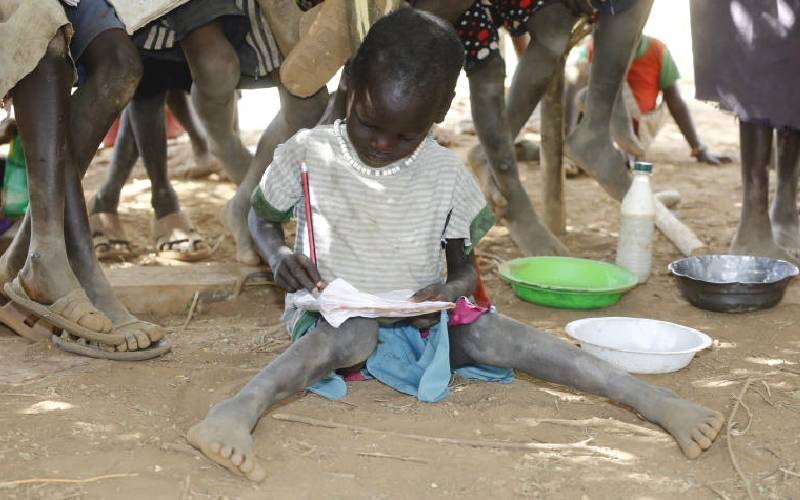×
The Standard e-Paper
Stay Informed, Even Offline

Pupils of Paka primary school in Tiaty sub-county studying under a tree on October 9, 2017. [Kipsang Joseph, Standard]
As the debate on how to improve the quality of learning intensifies in Sub-Saharan Africa, questions are emerging as to whether many children are being left behind due to poverty occasioned by climate change, ethnic conflicts, insecurity, negative gendered cultural norms and little government support.







